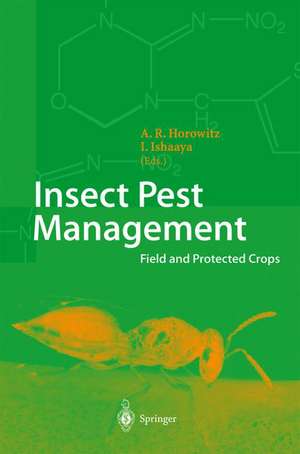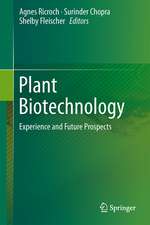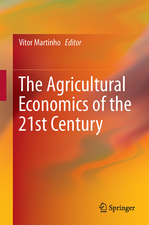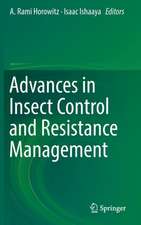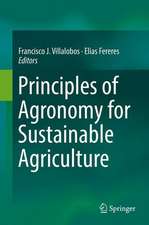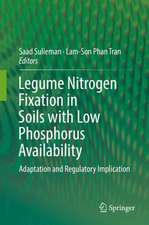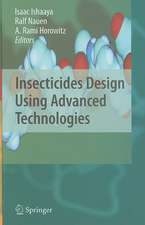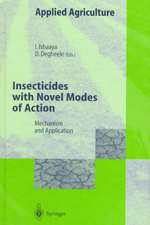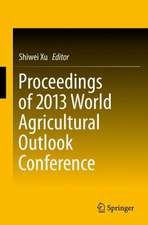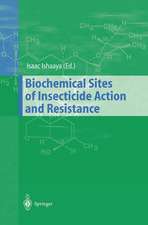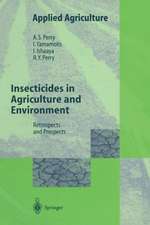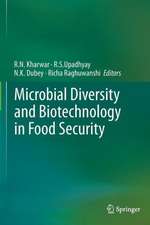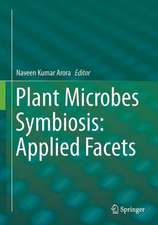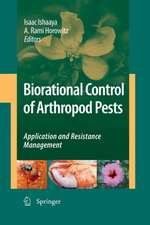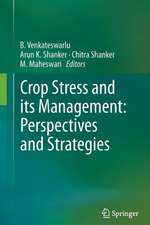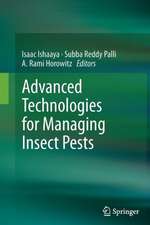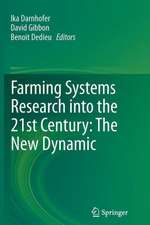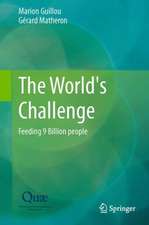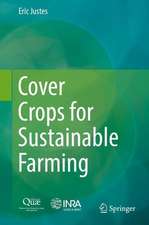Insect Pest Management: Field and Protected Crops
Editat de A. Rami Horowitz, Isaac Ishaayaen Limba Engleză Hardback – 8 apr 2004
| Toate formatele și edițiile | Preț | Express |
|---|---|---|
| Paperback (1) | 790.70 lei 38-44 zile | |
| Springer Berlin, Heidelberg – 30 noi 2010 | 790.70 lei 38-44 zile | |
| Hardback (1) | 953.97 lei 6-8 săpt. | |
| Springer Berlin, Heidelberg – 8 apr 2004 | 953.97 lei 6-8 săpt. |
Preț: 953.97 lei
Preț vechi: 1163.38 lei
-18% Nou
Puncte Express: 1431
Preț estimativ în valută:
182.54€ • 191.10$ • 151.04£
182.54€ • 191.10$ • 151.04£
Carte tipărită la comandă
Livrare economică 05-19 aprilie
Preluare comenzi: 021 569.72.76
Specificații
ISBN-13: 9783540207559
ISBN-10: 3540207554
Pagini: 368
Ilustrații: XXI, 344 p.
Dimensiuni: 155 x 235 x 28 mm
Greutate: 0.69 kg
Ediția:2004
Editura: Springer Berlin, Heidelberg
Colecția Springer
Locul publicării:Berlin, Heidelberg, Germany
ISBN-10: 3540207554
Pagini: 368
Ilustrații: XXI, 344 p.
Dimensiuni: 155 x 235 x 28 mm
Greutate: 0.69 kg
Ediția:2004
Editura: Springer Berlin, Heidelberg
Colecția Springer
Locul publicării:Berlin, Heidelberg, Germany
Public țintă
ResearchCuprins
Biorational Insecticides — Mechanisms, Selectivity and Importance in Pest Management.- New Applications for Neonicotinoid Insecticides Using Imidacloprid as an Example.- The Spatial Dimension in the Ecology of Insect Pests and Its Relevance to Pest Management.- Resistance Management for Sustainable Use of Bacillus thuringiensis Crops in Integrated Pest Management.- Implementing Integrated Pest Management in Australian Cotton.- Area-Wide Management of Insects Infesting Cotton.- Integrated Pest Management for Insect Pests of Cotton in Less Developed Countries.- Advances in Insect Pest Management of Oilseed Rape in Europe.- Recent Advances and Developments in Corn Integrated Pest Management.- Advances in United States Sweet Corn and Snap Bean Insect Pest Management.- Integrated Pest Management in Vegetables and Ornamentals in the Western United States.- Physical Control in Greenhouses and Field Crops.- Ultraviolet-Absorbing Barriers, an Efficient Integrated Pest Management Tool to Protect Greenhouses from Insects and Virus Diseases.
Textul de pe ultima copertă
This book deals with new approaches to insect pest management in field and protected crops using ecologically sound and innovative techniques.
It starts with an overview on general topics in pest management, i.e., the efficacy and selectivity of new biorational insecticides such as insect growth regulators, avermectins, the neonicotinoid insecticides, and the ecology of insect pests and relevance to pest management along with new insights into cultural and physical control in greenhouses and field crops. Other chapters are dedicated to transgenic crops, their usefulness and the problems which have emerged during their implementation. Advances in pest management of important crops such as cotton -- in developed and less developed countries -- corn, oilseed rape and various vegetables are dealt with in detail.
The authors of the various chapters have a wealth of experience and are considered world leaders specializing in various aspects of pest management programs.
It starts with an overview on general topics in pest management, i.e., the efficacy and selectivity of new biorational insecticides such as insect growth regulators, avermectins, the neonicotinoid insecticides, and the ecology of insect pests and relevance to pest management along with new insights into cultural and physical control in greenhouses and field crops. Other chapters are dedicated to transgenic crops, their usefulness and the problems which have emerged during their implementation. Advances in pest management of important crops such as cotton -- in developed and less developed countries -- corn, oilseed rape and various vegetables are dealt with in detail.
The authors of the various chapters have a wealth of experience and are considered world leaders specializing in various aspects of pest management programs.
Caracteristici
Meets the growing demand for information on a safer and environmentally friendly approach to pest management Describes new strategies to reduce resistance problems
